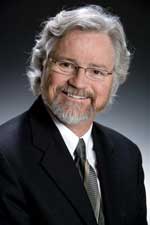 OTTAWA – In last week’s column I began to explain how the results of the May 2nd federal election will affect parliament and our system of government in Canada. Following up last week’s introduction that included the election results, the effect they will have on confidence votes and Question Period each day I would like to conclude the summary this week with what the results will mean for committee work, our judicial system, and the civil service.
OTTAWA – In last week’s column I began to explain how the results of the May 2nd federal election will affect parliament and our system of government in Canada. Following up last week’s introduction that included the election results, the effect they will have on confidence votes and Question Period each day I would like to conclude the summary this week with what the results will mean for committee work, our judicial system, and the civil service.
Committees are comprised of 10 MPs who collectively examine legislation and particular issues in a more in depth manner. The makeup of these Committees, each dealing with specific policy areas (ie: Foreign Affairs, Health, National Defence, etc), reflects the party standings in the House of Commons. For instance, in the last parliament when my Bill C-501 was examined in the Industry Committee the composition of that Committee included five Conservatives (1 was a non-voting Chair of the Committee), three Liberals, two Bloc, and one New Democrat. In this parliament, that same committee will most likely be comprised of 5-6 Conservatives, 3-4 New Democrats, and 1-2 Liberals. On most, if not all, committees the Conservatives will have a majority and control the agenda, witness list, and meetings times. There will be no Bloc, Green, or Independent MPs on any Committee in this parliament because a party must have 12 seats in parliament to obtain official status on the Committees.
After five full years of Conservative minority rule and with four more years of majority rule to come Canada’s other democratic institutions will be transformed as well. In this parliament, Stephen Harper has already appointed three more Senators (former Conservative candidates who were rejected by the voters – but we’ll deal that particular issue another time!) which means that his Conservatives have an absolute majority in both Chambers of Parliament – the House of Commons and the Senate. There are also two Supreme Court justices set to retire this year which will mean that by 2012 a majority of Supreme Court justices will have been appointed by a Conservative Prime Minister. Finally, the Conservatives will continue to make up to 1000 appointments per year to the upper levels of the civil service, judiciary, various tribunals (ie: immigration tribunals, CPP appeal tribunals, etc.), regional port authorities and many more handpicked candidates to work in other federal institutions.
In all, Canadians have chosen a very clear path forward for our country. Stephen Harper and his government have been given the right to govern – largely unfettered for the next four years. Conservatives will dominate the House, Senate, Supreme Court and judiciary, and the civil service. But we must also not forget that “with great power comes great responsibility.” The increased political power enjoyed by the Conservatives means that Stephen Harper can no longer blame others for hampering his economic agenda or delaying legislation the House, committees, or in the Senate because he now controls all of these institutions. He can’t even blame the courts anymore for misinterpreting his legislation or rendering judgments he doesn’t agree with because most federal judges and Supreme Court justices will have been appointed by him. And the civil service will be chocked full of Conservative appointees who have accumulated power and status over 9 years of government appointments by the time the next election arrives.
New Democrats recognize and accept the decision of Canadians. For our part, we will hold this government to account and provide alternative policies that are worthy of our position as the Official Opposition. The term Official Opposition sounds like a negative term, but it really is not. Constitutionally, the interpretation has also been interpreted as the ‘Government in Waiting,’ meaning that we are in essence the next party in line to form government. As such, we will investigate and criticize this government’s conduct and policy when needed, but also voice support for initiatives that we agree with and propose better policies of our own to prove that Canadians will always have a voice and a choice in our democratic system.
John Rafferty MP
Thunder Bay Rainy River

